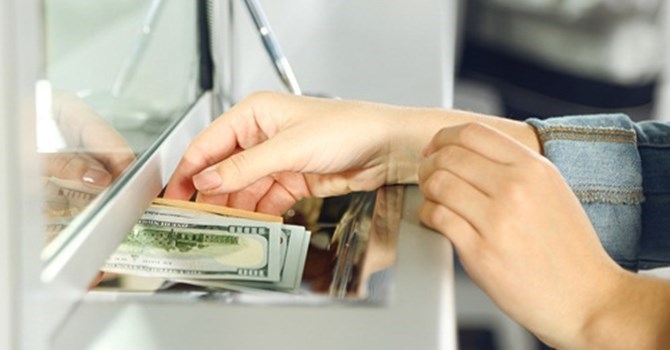|
What will
happen in Vietnam if US raises the interest rate?
If the US Fed
raised the prime interest rate, the overseas remittance (kieu hoi) flow to
Vietnam would slow down, the dong would depreciate, and the dong interest
rate would increase. The decision will also change international capital flow.

The
US FED has raised the prime interest rate by 0.25 percentage point and
anticipates three further increases in 2017.
The dong/dollar exchange rate soared on December 15 to VND22,770 per dollar as quoted by commercial banks, though the gap between the buy/sell dollar price was still at VND70-80 per dollar. Soon after the FED’s decision on the interest rate adjustment was announced, the official dong/dollar exchange rate on December 15 was raised by VND11 per dollar to VND22,135 per dollar. One day later, the exchange rate rose to VND22,144 per dollar. With the trading band of +/- 3 percent, commercial banks can quote the dollar prices at VND22,808-22,480 (ceiling/floor prices).
VP Bank
Securities predicted that the greenback value will stay high against other
currencies, including Japanese yen and Euro. Meanwhile, the official exchange
rate in Vietnam is expected increase to VND22,168 per dollar by the end of
the year.
If the dong does not depreciate sharply against the dollar, this means the dong will appreciate against other currencies. The businesses which have loans in Japanese yen and Euro will get exchange rate benefits, while businesses with loans in dollars will be at a disadvantage. The dong devaluation is first reaction of the Vietnamese market to the FED’s decision. HSBC Vietnam’s report on the impact of the move, released on December 15, pointed out that as a result of the decision, the cost of loans will be increasing, while hot capital will flow out of developing countries and return to the US to enjoy higher interest rates, and currencies of developing countries will be under pressure of devaluation. The Vietnam dong, like other currencies, is also under pressure. The total trade deficit of $700 million also increases the pressure. HSBC said that the volume of government bonds in dong being held by foreign investors is modest; therefore, Vietnam, unlike other regional markets, would not see foreign investors trying to bargain bonds away and buying dollars. Regarding overseas remittances, Dau Tu quoted sources as reporting that once the interest rate becomes more attractive in the US, remittances from the US, which account for 60 percent of total overseas remittances to Vietnam, would decrease.
Thanh Lich, VNN
|
Thứ Tư, 21 tháng 12, 2016
Đăng ký:
Đăng Nhận xét (Atom)
Không có nhận xét nào:
Đăng nhận xét